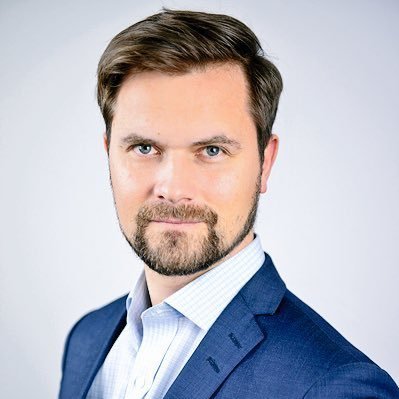From July 28 to August 3, Pope Leo experienced his first major engagement with young people, as one million youth gathered for an international event that highlighted the vitality of the global Church. Participants came from all corners of the world, but it was the Korean flags that caught the eye — a nod to the upcoming World Youth Day in Seoul, scheduled for 2027.
Ahead of the Jubilee of Youth closing Mass, Andreas Thonhauser, Vice President and Global Chief Officer of EWTN, spoke with Stephanie a member of the Seoul WYD organizing committee. She shared key advice on what attendees can expect and how best to prepare for this highly anticipated celebration.
For those who are thinking already about coming to Seoul, what will they have to prepare for? What will they have to bring?
Well, I would say first of all, your faith and your passion for meeting a very different kind of culture because after all, Korea it's a non-Catholic country, so probably a lot of things that you see are very different from what you see in Europe and definitely in Rome. So, an openness and to open up to something new and something practical is, maybe, bring an umbrella to keep you off from the heat.
Okay, so bring your umbrella. Can you tell me a bit more what are the differences? What do you need people to prepare for? Can you describe this a bit?
First of all, because Korea only has around 10% of Catholics, so it's not like in Rome that you'll meet churches every corner of the street. It's that you're not going to meet a lot of Catholics on the street, of course. You're not going to meet a Catholic randomly. It's impossible. People might stare at you if you shout hallelujah on the street. So it's kind of a very different atmosphere in the streets of Korea, so I would say be prepared for that, but be open also for everything you knew, that you might see.
How will locals receive the people?
I think two ways, because people will see, people would probably stare them amazed with all the international young people from all around the world. And some might be a little bit intimidated, because they might need to talk in the foreign languages. And also, I think... This is a very challenging question of how they might be received, because, I mean, this kind of event has never happened in Seoul before. So even for me, it's quite unimaginable.
So a lot of surprises, probably.Is there anything you would recommend that pilgrims do not do when they come to Seoul?
Not to shout too much during the night and try to contain your wish to sing and shout after 12 midnight maybe.
So, people appreciate their sleep.
Yes, because Seoul is a very crowded city where a lot of people live. So it's not like Rome, or other European cities that, you know, might sing and shout freely in the streets without disturbing a lot of people, but it's not going to happen in Seoul because, as I said before, it's crowded. A lot of people live in Seoul. So the shouting would be a little bit different, would be perceived a little bit differently in Seoul.
I see. And what would you say, what will be the impact of the World Youth Day on Korea and on the church in Korea?
For me, I see it positively, actually, because as I said before, not a lot of this kind of international events happen in Seoul. And so, I think for Korea, it's also a new experience to experience all the international culture, international vibe, to help them see how people from different cultures will act and even interact with them. So, I think for Korea, this is a very good chance to experience, you know, globally.
SIGN UP FOR OUR NEWSLETTER HERE
Adapted by Jacob Stein. Andrea Manna contributed to this article; Produced by Andreas Thonhauser; Camera by Alberto Basile, Fabio Gonnella; Video Edited by Andrea Manna; Special thanks & Credits to Vatican Media

Andreas Thonhauser is EWTN Vatican Bureau Chief. He holds an MBA from WU Executive Academy and a Master’s in German Philology and Americanistics from the University of Vienna. He previously worked in media and as Director of External Affairs for a global human rights organization, and for several media outlets in Vienna, Austria.









